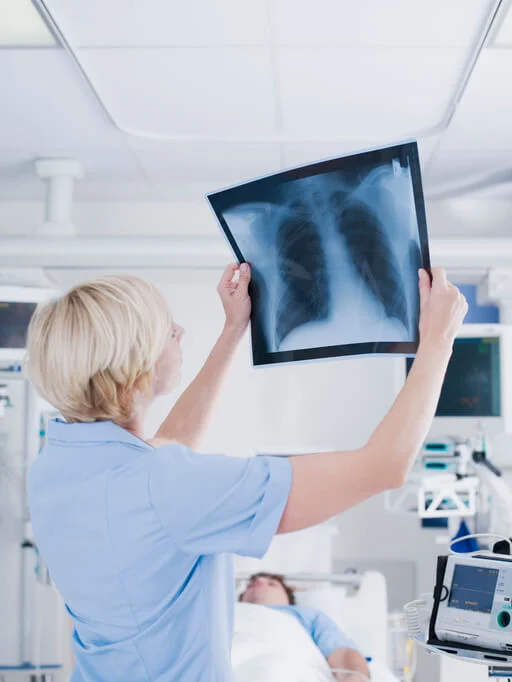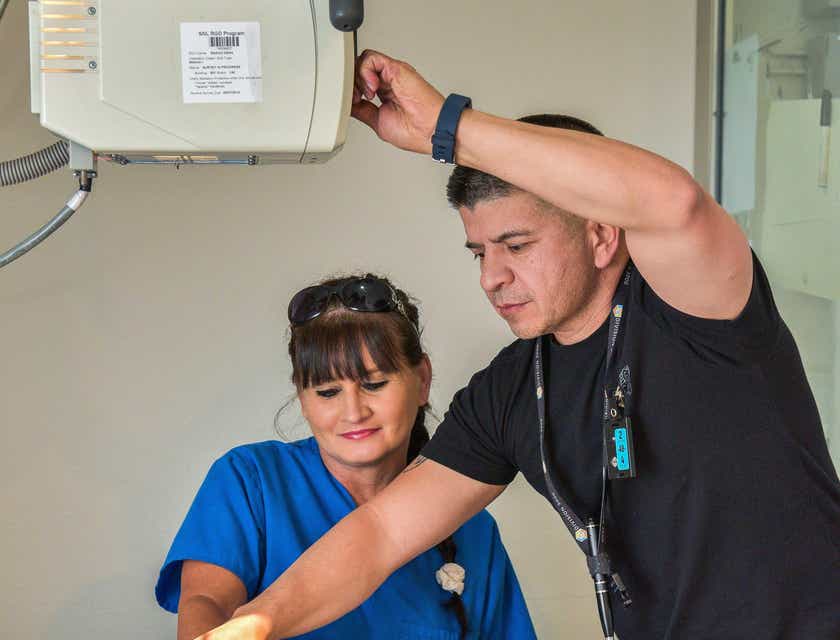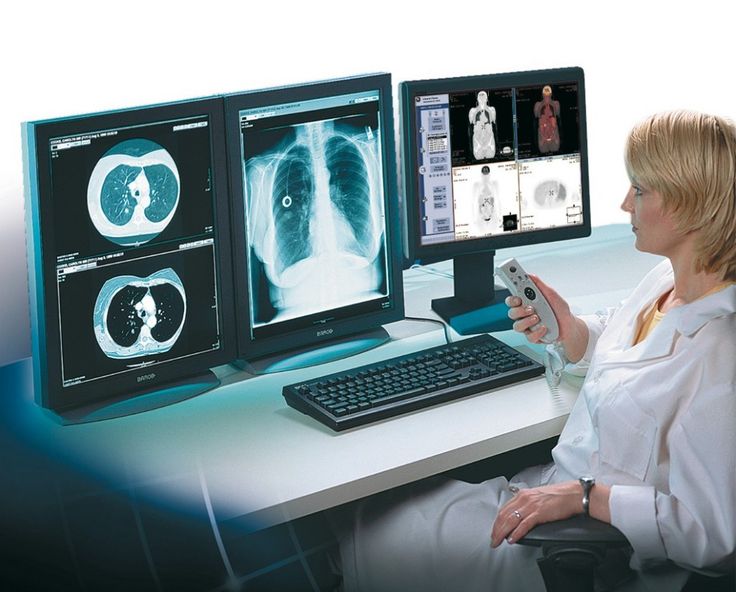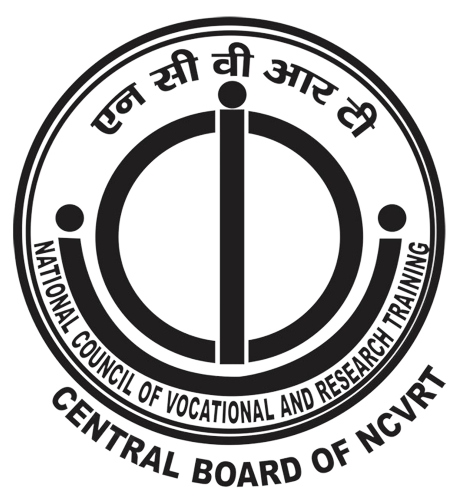PG Courses
Duration: Postgraduate programs in this field typically have a duration of 1 to 2 years. The exact duration may vary depending on the institution and the specific program.
Eligibility: Candidates often need to have a relevant undergraduate degree or diploma in radiography, medical imaging, or a related field. Some programs may also consider individuals with relevant work experience.
Curriculum: The curriculum of a PG X-ray Tech program usually includes advanced topics in medical imaging, radiography, X-ray technology, and related subjects. Coursework may cover areas such as advanced radiographic techniques, image interpretation, radiation safety, and research methods.

Duration:
Postgraduate programs in this field typically have a duration of 1 to 2 years.
The exact duration may vary depending on the institution and the specific
program.
Eligibility:
Candidates often need to have a relevant undergraduate degree or diploma in
radiography, medical imaging, or a related field. Some programs may also
consider individuals with relevant work experience.
Curriculum:
The curriculum of a PG X-ray Tech program usually includes advanced topics in
medical imaging, radiography, X-ray technology, and related subjects.
Coursework may cover areas such as advanced radiographic techniques, image
interpretation, radiation safety, and research methods.
8 Month
Theory
18 - 30
Age
10th & Above
Eligibility
1 Year
Duration
4 Month
On Job Training

What will you learn?
Clinical Training: Practical or clinical training is a crucial component of these programs. Students often undergo hands-on training in clinical settings to develop practical skills in operating X-ray equipment and conducting imaging procedures.
Specialization: Depending on the program, students may have the opportunity to specialize in a specific area of medical imaging, such as computed tomography (CT), magnetic resonance imaging (MRI), or interventional radiography.
Career Opportunities: Graduates of PG X-ray Tech programs are typically qualified to work as radiographers, radiologic technologists, or medical imaging professionals in hospitals, diagnostic centers, and other healthcare settings.: Postgraduate programs in this field typically have a duration of 1 to 2 years. The exact duration may vary depending on the institution and the specific program.
Here are some frequently asked questions about nursing courses:
What is the eligibility criteria for nursing courses?
What are the different types of nursing courses?
• What are the benefits of pursuing a career in nursing?
• How long does it take to complete a nursing course?
• What is the average salary of a nurse?
• What are the job prospects for nurses?
• What are the different specializations available in nursing courses?

Practical:
Practical conducted in stimulated labs that are highly equipped with modern facilities to help students develop a broad understanding of fundamental concepts and learn how to operate different imaging equipment.
On-the-Job-Training:
Students are placed for on-job training to learn by observing and handling the job under the guidance of healthcare professionals. It provided them with a better industrial exposure to learn new skills in the real-working environment from healthcare experts.
Study Tours:
Industrial visits or study tours to leading hospitals to help them learn intricate nuances of X-ray and electrocardiogram procedures from professionals and ensure our students develop required competency mandatory for career planning.
FAQ
Most frequent questions and answers
X-ray technicians, also known as radiologic technologists, are medical support professionals who specialize in the operation of x-ray equipment. … Between procedures, technicians maintain x-ray equipment to ensure that it is in good working order.
10th passed from a recognized board.
Radiologist is a good career choice as radiography is a fast growing job market with a 21% projected increase from 2012 to 2022.
X-ray Technicians, also called radiologic technologists, operate imgaing machines to produce medical images of a patient’s body.
It is a fast growing career. Professionals having excellent technical and analytical skills are in great demand as they operate imaging technology equipment which helps doctors to diagnose illness.


